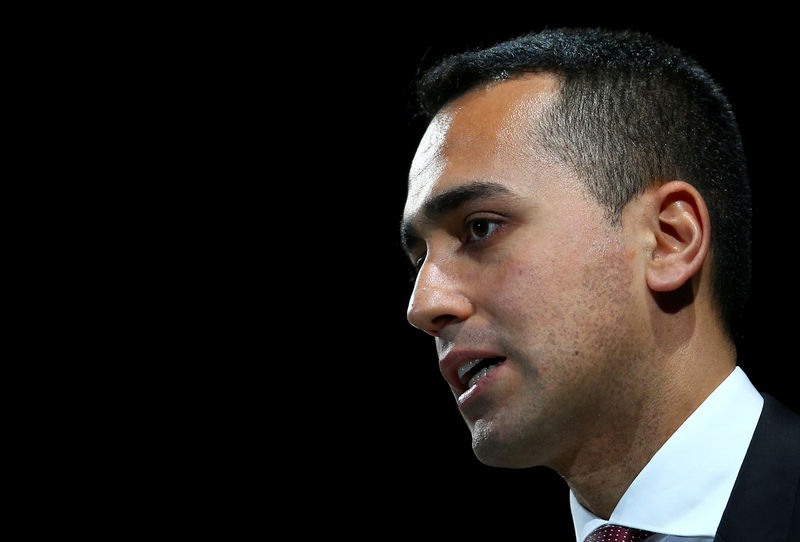By Francesco Guarascio
ROME (Reuters) - Economists on Monday predicted a further hike in Italy's debt servicing costs, as senior Italian officials said respecting European Union fiscal rules was not the priority for the new eurosceptic government.
Italy's bond yields were largely stable, after a sell-off of debt that on Friday briefly pushed yields on its 10-year bonds (IT10YT=RR) above 3 percent for the first time since June.
But economists said they believed the lull was only temporary, partly caused by an unannounced buyback operation carried out by the Italian Treasury on its outstanding short-dated bonds late on Aug. 3.
"We see the Italian 10-year yield rising to 3.5 percent by year-end," said economists at Capital Economics, a research firm, in a note which predicted a further rise to 4 percent next year.
Earlier on Monday, Italy's Deputy Prime Minister and head of the co-ruling anti-establishment 5-Star Movement, Luigi Di Maio, said fiscal rules would be applied only if they did not hamper the government's reform agenda.
Rome would try to apply planned reforms, which include tax cuts and higher spending on pensions and welfare, without breaching fiscal conditions set by the European Union to help Italy reduce its public debt, the highest in the bloc after bailed-out Greece.
But "our priority is the citizens and their needs," Di Maio told broadcaster RAI in an interview.
Asked whether he considered sticking to the 3 percent EU limit on the public deficit an unconditional duty, Di Maio said respecting fiscal rules "cannot be a way to say that we cannot implement" the reform agenda.
He also ruled out a hike in sales taxes in the next budget. Some observers have suggested such a hike could help pay for higher spending.
NOT THE "BIBLE"
Capital Economics said its forecasts were based on a scenario in which the Italian government implemented only a small portion of its planned reform programme. It said the programme as a whole could cost up to 67 billion euros (£59.77 billion) and bring the deficit to 6.2 percent of GDP.
Di Maio's main government partner Matteo Salvini, leader of the right-wing League, on Sunday made similar remarks to the deputy prime minister's.
"We'll do our best to avoid having to raise the deficit and try to respect all the little rules, but if the choice is between helping or ruining families, I say the 3 percent deficit-to-GDP ratio is not the Bible," Salvini told daily Corriere della Sera.
The party chiefs' remarks seem at odds with Economy Minister Giovanni Tria, an academic who is not from either party, who has repeatedly said he wants to prevent any rise in Italy's structural deficit, adjusted for economic growth fluctuations.
Senior government officials reached a compromise on the next budget's outline on Aug. 3. Tria said he was satisfied with the preliminary agreement, stressing it was compatible with budgetary objectives.
Another meeting on the budget is expected to take place on Wednesday, according to Italian newspapers.

The government needs to agree its fiscal plan for next year by September and must present a draft budget to the European Commission by mid-October.